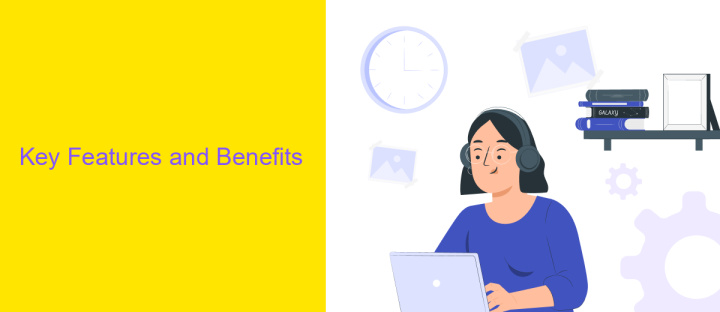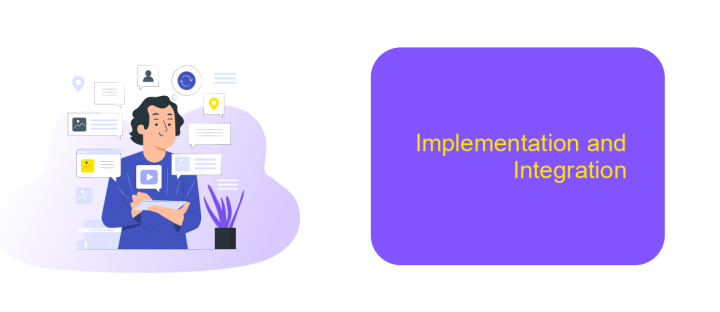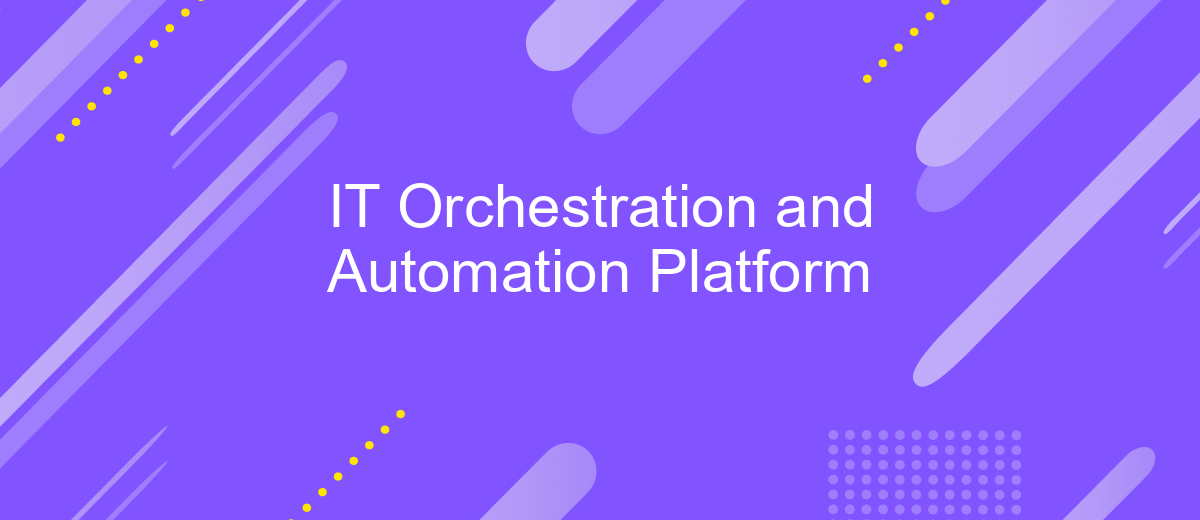IT Orchestration and Automation Platform
In today's fast-paced digital landscape, IT orchestration and automation platforms have become essential tools for businesses striving to enhance efficiency and agility. These platforms streamline complex processes, reduce manual intervention, and ensure seamless integration across diverse systems. By leveraging advanced automation technologies, organizations can achieve operational excellence, minimize errors, and focus on strategic initiatives that drive innovation and growth.
Introduction
In today's rapidly evolving technological landscape, businesses are increasingly turning to IT orchestration and automation platforms to streamline their operations and enhance efficiency. These platforms provide a unified approach to managing and automating various IT processes, helping organizations to reduce manual intervention, minimize errors, and accelerate service delivery. By leveraging advanced orchestration and automation tools, companies can achieve greater agility and responsiveness in meeting their IT and business objectives.
- Centralized management of IT resources
- Automated workflows and processes
- Improved scalability and flexibility
- Enhanced compliance and security
- Reduced operational costs
As businesses continue to grow and evolve, the demand for robust IT orchestration and automation solutions will only increase. By adopting these platforms, organizations can not only optimize their existing IT infrastructure but also pave the way for future innovations. This holistic approach to IT management ensures that companies remain competitive and can quickly adapt to changing market conditions, ultimately driving business success and growth.
Key Features and Benefits

Our IT Orchestration and Automation Platform offers a comprehensive suite of features designed to streamline your IT operations. With advanced workflow automation, you can eliminate repetitive tasks, reduce human error, and enhance productivity. Our platform supports a wide range of integrations, allowing seamless connectivity between different systems and applications. For instance, ApiX-Drive can be utilized to effortlessly set up and manage these integrations, ensuring smooth data flow and synchronization across your IT ecosystem.
Additionally, our platform provides robust monitoring and analytics tools that give you real-time insights into your IT infrastructure. This allows for proactive issue resolution and informed decision-making. The user-friendly interface ensures that both technical and non-technical users can easily navigate and utilize the platform's capabilities. By leveraging our IT Orchestration and Automation Platform, you can achieve greater operational efficiency, reduce costs, and accelerate your digital transformation journey.
Use Cases

IT Orchestration and Automation Platforms are essential tools in modern enterprise environments, helping streamline complex processes and improve operational efficiency. These platforms are designed to manage and automate a wide range of IT tasks, from infrastructure provisioning to application deployment, and can significantly reduce manual intervention.
- Infrastructure Management: Automate the provisioning, configuration, and monitoring of servers, storage, and network resources.
- Application Deployment: Streamline the deployment process of applications across multiple environments, ensuring consistency and reducing errors.
- Incident Response: Automate the detection and remediation of incidents, minimizing downtime and improving service reliability.
- Compliance and Auditing: Ensure that all processes adhere to regulatory requirements and maintain detailed logs for auditing purposes.
- Patch Management: Automate the deployment of patches and updates across the IT infrastructure, reducing vulnerabilities and enhancing security.
By leveraging IT Orchestration and Automation Platforms, organizations can achieve greater agility, reduce operational costs, and improve overall service quality. These platforms enable IT teams to focus on strategic initiatives rather than repetitive tasks, driving innovation and competitive advantage.
Implementation and Integration

Implementing an IT Orchestration and Automation Platform requires careful planning and execution to ensure seamless integration with existing systems. The first step involves assessing the current IT infrastructure to identify potential challenges and compatibility issues. This assessment helps in creating a roadmap that outlines the integration process and sets realistic timelines.
Once the assessment is complete, the next phase is to configure the platform according to the specific needs of the organization. This involves customizing workflows, setting up automation scripts, and integrating with third-party tools and services. Proper documentation and training are crucial at this stage to ensure that the IT team can effectively manage and utilize the platform.
- Assess current IT infrastructure
- Create an integration roadmap
- Customize workflows and automation scripts
- Integrate with third-party tools
- Provide documentation and training
Finally, continuous monitoring and optimization are essential to maintain the efficiency of the platform. Regular updates and feedback loops help in identifying areas for improvement and ensuring that the platform evolves with the changing needs of the organization. With a well-executed implementation and integration plan, organizations can achieve greater efficiency and agility in their IT operations.


Industry Trends and Future Outlook
The IT orchestration and automation platform landscape is evolving rapidly, driven by the increasing demand for streamlined operations and enhanced efficiency. Businesses are now focusing on integrating diverse systems and automating repetitive tasks to reduce human error and save time. This trend is amplified by the rise of cloud computing and the need for scalable solutions that can adapt to dynamic business environments. Tools like ApiX-Drive are becoming essential, enabling seamless integration of various services and applications without the need for extensive coding knowledge.
Looking ahead, the future of IT orchestration and automation platforms appears promising, with advancements in AI and machine learning set to play a pivotal role. These technologies will enable predictive analytics and smarter automation, leading to more proactive and efficient IT management. Additionally, as businesses continue to adopt a hybrid work model, the demand for robust and flexible orchestration tools will only grow. Companies that leverage these platforms effectively will be better positioned to navigate the complexities of modern IT landscapes and drive innovation.
FAQ
What is an IT Orchestration and Automation Platform?
How can IT orchestration and automation benefit my business?
What types of tasks can be automated with an IT Orchestration and Automation Platform?
How do I get started with implementing an IT Orchestration and Automation Platform?
What should I look for in an IT Orchestration and Automation Platform?
Do you want to achieve your goals in business, career and life faster and better? Do it with ApiX-Drive – a tool that will remove a significant part of the routine from workflows and free up additional time to achieve your goals. Test the capabilities of Apix-Drive for free – see for yourself the effectiveness of the tool.

